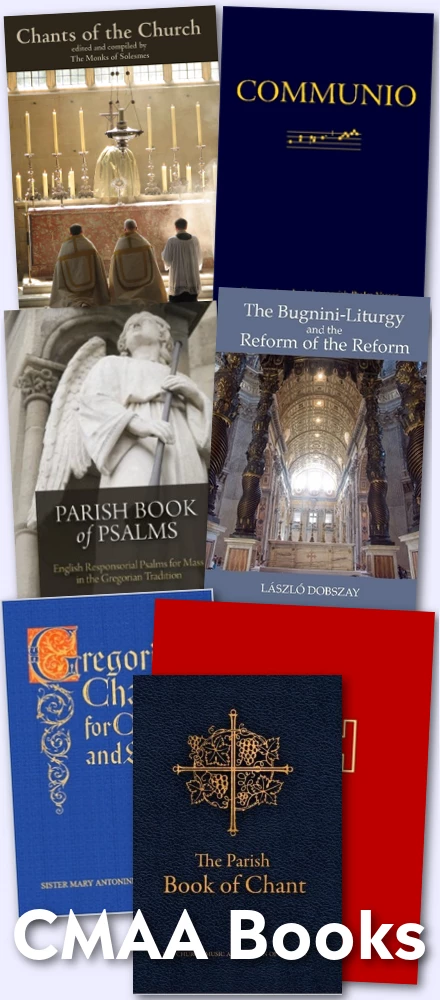In the Byzantine Rite, the Divine Liturgy is not celebrated on the weekdays of Lent, but only on Saturdays and Sundays; an exception is made for the feast of the Annunciation. Therefore, at the Divine Liturgy on Sundays, extra loaves of bread are consecrated, and reserved for the rest of the week. On Wednesdays and Fridays, a service known as the Liturgy of the Presanctified Gifts is held, in which Vespers is mixed with a Communion Rite. (It is also held on the first three days of Holy Week, and may be done on other occasions, but twice a week is the standard practice.)
The first part of this ceremony follows the regular order of Vespers fairly closely, and the second part imitates the Great Entrance and the Communion rite of the Divine Liturgy. After the opening Psalm (103) and the Litany of Peace, the Gradual Psalms are chanted by a reader in three blocks, while a portion of the Presanctified Gifts is removed from the tabernacle, incensed, and carried from the altar to the table of the preparation. This is followed by a general incensation of the church, as the hymns of the day are sung with the daily Psalms of Vespers (140, 141, 129 and 116), the entrance procession with the thurible, and the hymn Phos Hilaron. Two readings are given from the Old Testament (Genesis and Proverbs in Lent, Exodus and Job in Holy Week), after which, the priest stands in front of the altar and incenses it continually, while the choir sings verses of Psalm 140, with the refrain “Let my prayer rise before Thee like incense, the lifting up of my hands as an evening sacrifice.” (The first part of this refrain is also NLM’s motto.)
This particular setting is by one of the greatest Slav composers of music for the Byzantine Liturgy, Dmitry Bortniansky, who was born in 1751 in the city of Hlukhiv in modern Ukraine. At the age of seven, he went to St Petersburg to sing with the Imperial Court Chapel, whose Italian master, Baldassare Galuppi, was so impressed with his talents that he brought him back to Italy in 1769. After ten years of training and work as a composer, Bortniansky returned to St Petersburg, and eventually became himself master of the same choir. His enormous oeuvre includes operas, instrumental compositions, songs in a variety of languages, 45 sacred concertos, and of course a very large number of liturgical compositions in Church Slavonic, like the one given above.
The first part of this ceremony follows the regular order of Vespers fairly closely, and the second part imitates the Great Entrance and the Communion rite of the Divine Liturgy. After the opening Psalm (103) and the Litany of Peace, the Gradual Psalms are chanted by a reader in three blocks, while a portion of the Presanctified Gifts is removed from the tabernacle, incensed, and carried from the altar to the table of the preparation. This is followed by a general incensation of the church, as the hymns of the day are sung with the daily Psalms of Vespers (140, 141, 129 and 116), the entrance procession with the thurible, and the hymn Phos Hilaron. Two readings are given from the Old Testament (Genesis and Proverbs in Lent, Exodus and Job in Holy Week), after which, the priest stands in front of the altar and incenses it continually, while the choir sings verses of Psalm 140, with the refrain “Let my prayer rise before Thee like incense, the lifting up of my hands as an evening sacrifice.” (The first part of this refrain is also NLM’s motto.)
This particular setting is by one of the greatest Slav composers of music for the Byzantine Liturgy, Dmitry Bortniansky, who was born in 1751 in the city of Hlukhiv in modern Ukraine. At the age of seven, he went to St Petersburg to sing with the Imperial Court Chapel, whose Italian master, Baldassare Galuppi, was so impressed with his talents that he brought him back to Italy in 1769. After ten years of training and work as a composer, Bortniansky returned to St Petersburg, and eventually became himself master of the same choir. His enormous oeuvre includes operas, instrumental compositions, songs in a variety of languages, 45 sacred concertos, and of course a very large number of liturgical compositions in Church Slavonic, like the one given above.




















